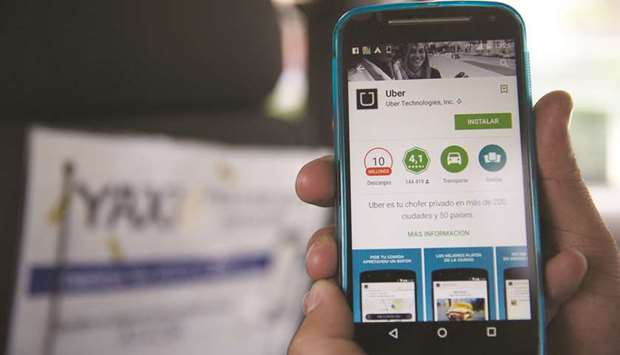London’s transit authority is set to announce as soon as Monday whether it will grant Uber Technologies Inc a new licence to operate.
If Transport for London decides against the company, Uber could face expulsion from its most important European market on Tuesday. A new long-term licence would provide a level of certainty that Uber and its roughly 45,000 London drivers haven’t experienced in years.
London’s ride-sharing market has changed significantly since TfL concludedin 2017 that Uber wasn’t “fit and proper” to hold a licence. New entrants, such as Ola, ViaVan and Bolt, have since gained licences to operate in the city. Uber has also faced a series of lawsuits in the UK, including losing a case over drivers’ employment rights.
Dara Khosrowshahi was only weeks into his new job as Uber’s chief executive officer in 2017 when TfL said the company failed to do adequate background checks on drivers and report serious criminal offences. It also took issue with Uber software called Greyball that blocked government officials attempting to catch lawbreaking drivers. London Mayor Sadiq Khandefended the regulator’s decision, saying that “providing an innovative service must not be at the expense of customer safety and security.”
A public apology came alongside an appeal that let Uber keep operating until a court hearing. Khosrowshahi implemented a number of changes in the months that followed: Drivers would have mandatory breaks after 10 hours of work and get insurance packages to cover them for lost earnings during an illness or injury. Driver advisory groups were created to let workers report concerns to senior Uber staff along with 24-hour phone support lines for riders and drivers.
There are signs that Uber will win a licence to operate “for 15 months or even three years,” Bloomberg Intelligence analyst Aitor Ortiz said. “New competitors in the capital — such as Ola and ViaVan — indicate that Transport for London may be granting more licences to increase competition.”
Jim Kelly, a taxi driver and chair of the London and eastern region of workers’ union Unite, said TfL’s measures for regulating Uber and similar companies don’t go far enough.
“It’s in Uber’s DNA to undermine regulation and create a race to the bottom in towns and cities where they operate,” he added.
A spokeswoman for Uber declined to comment. Representatives for TfL didn’t respond to a request for comment.
In June 2018, Uber secured a 15-month probationary licence to operate in London. While falling short of the five-year private-hire permit the company previously held, it gave Uber some breathing room to focus on its upcoming initial public offering. The May listing was the biggest US IPO of 2019, but shares are now down nearly 40% as investors worry about the company’s mounting losses as well as US and European lawsuits related to worker rights.
The probationary licence expired in September, at which point TfL gave Uber a permit of just two months. That is due to run out on November 25.

A man holds a smartphone displaying Uber Technologies application. If Transport for London decides against the company, Uber could face expulsion from its most important European market on Tuesday.
